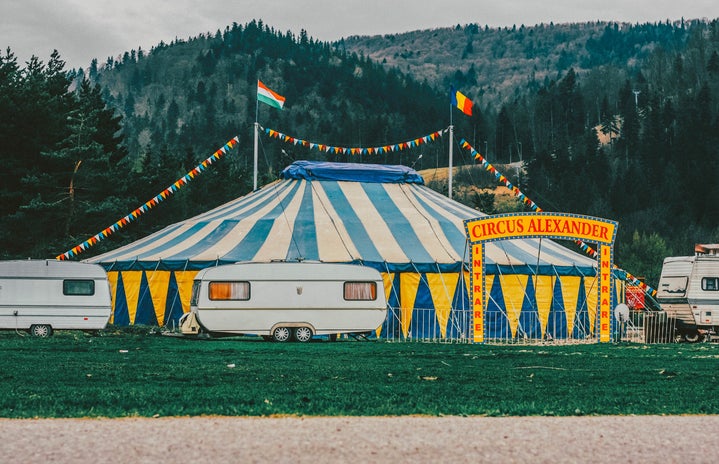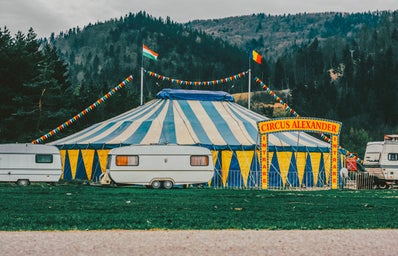The traditional Indian schooling system is somewhat monotonous with only conventional classes and courses. For those of us who’ve been to a traditional school, we know the monotony. Sukanya Janardhanan from the second year is currently on her semester abroad at Columbia University. Guess what, she didn’t go to a traditional school in Grade 11 and 12. She studied at Isha Home School which is an alternate school in Coimbatore, Tamil Nadu. Her experience there has been somewhat different. I conducted an interview to know more about her experiences.
1. How is Isha Home School different from the traditional schooling system?
S: It’s a residential school. There are only about 350 people in the whole school from 1st to 12th. My teachers were all volunteers. My batch had only 20 people and my class sizes were mostly three or four people. This meant that my teachers knew me personally and helped me work on my strengths and weaknesses. We had physical activity and wellness integrated with school and we studied things which went above and beyond any specific syllabus. We all had some kind of skill we horned (not necessarily just one). I did theatre, MUNs, dance and a spattering of other things. We didn’t have dorms and wardens, we had houses and house-parents. By the end of the year, they do truly become family. There’s more but I think this sums the main things.
2. What was the application process for the school like? On what basis were you selected?
S: There was an application and then if you were shortlisted, a test, a group discussion and an interview on the campus. If you’re going in younger, the interview is just you having a lot of fun.
I’m not sure how or why I got selected. It all just worked out, I guess.
2. Was the module of Ashoka different/ difficult for you after you came from Isha Home School? How is the module at Ashoka different?
S: Ashoka and IHS have a similar conceptual background. What’s probably different is the freedom I have at Ashoka, although that probably has a lot to do with this being a college and that being a school. I think something that is considerably different at Ashoka is that it has given me a space to grow into a vocal feminist, something I couldn’t quite do at IHS.
3. How essential is physical activity in a school system?
S: I’m honestly not sure. We had to run laps of our grounds twice a day and do yoga every morning in school. I don’t think I ever fully committed to it the way I probably should have so I’m not the best case example for all the good that come out of it.
When I came to college, I wanted to be as involved in as many things as possible so by the end of my first year I wasn’t sleeping much and I was burning out a little. That’s when I did realize that I desperately missed some kind of schedule in my life that came from having to get up and go for sports or having to make sure I didn’t eat for four hours before yoga. I haven’t gone back to either running or doing yoga but being conscious of this meant that I at least make sure I sleep for 7-8 hours a day.
4. Which do you think is better, multiple guest lecturers or permanent faculty?
S: It’s never a question of this or that: at IHS we had a mix of both. Both are important. You need a constant faculty, especially at school and more so at a residential school, because they really connect with you and that’s very very important. Guest lecturers, on the other hand, bring a perspective from the world outside your walled-off campus and in general are pretty amazing people who have great life stories you want to listen to. One of our regular visiting teachers was a professor of Political Science from SUNY, Cristina Dragomir. Cristina Akka, as we called her taught me my basic political theory, Hobbes, Aristotle, Marx, the whole bunch. We even did an Oral History project where we spoke to people who had lived through the collapse of the USSR! It actually amazes me each time to think that in 11th grade, we had done so much.
5. Are you confident about your knowledge though your school had no specific syllabus?
S: Having no syllabus doesn’t mean someone just turns up in class and lectures. All it means is that even though we were an ICSE/ISC school our (sub-par) prescribed textbooks were not the only things we read or studied from. We would watch documentaries, use readings from other books, watch movies and TV shows, read the papers and so on. It also meant that we could lead the discussions to what we found interesting, that classes were more engaging and you learned things that were relevant to your daily life, not just a regurgitation of the textbook.
6. Do you think that the conventional schooling system has any benefits?
S: Nothing, really?
7. How did you get to know about this school? What convinced you to go here?
S: It’s a pretty weird story, actually. My parents always thought that I should go to a Rishi-Valley-like school. They asked me in the fourth grade, I said no, 8th grade, I said no, 11th grade, I finally said okay, let’s give it a shot. I went for a Rishi Valley interview but they didn’t take too many people in the 11th grade so we figured that I probably won’t make the cut. At that point we had a family friend who told us about IHS. None of us had ever heard of the place or even Isha, the organization, for that matter. For some reason, we decided to give it a shot – my application was actually submitted some three hours before the deadline. I got shortlisted and went to the school for my interview. The location and infrastructure of the school left me in complete awe (google it, you’ll know what I mean) and I really liked the vibe. Somehow, I got in even after (or maybe because of, I’ll never know) saying some really weird things in the interview. Long story short, in a month my life plans went from some Bombay college to a residential school in a forest.
8. How did you convince your parents to let you go?
S: We’re not a family that works that way. Decisions are made rationally and together. I didn’t need to convince them.
9. Were you and your parents happy with your choice of schooling?
S: My parents are honestly happy as long as I’m happy. They genuinely just want me to have fun and do things that’ll lead to an exciting new learning curve. As for me, I just go with things as they come.
10. Why did you choose to come to Ashoka? What was your first reaction when you came to campus?
S: So my teachers at school were very heavily invested in my life choices, haha. I had this one specific teacher, Anand Anna, who was convinced that I could “do better” than traditional Bombay colleges. He is from the US and believed that after IHS, Indian education would frustrate me and was very keen that I went abroad to study. He tried getting me to apply abroad but I really didn’t want to. I got his point but I just had a block against studying anywhere but India. Almost when I gave in, a senior who is studying at Jindal told me about Ashoka. When I looked it up it seemed like a match made in heaven, forgive the cliche. Honestly, I raved about the place so much that two of my other batchmates also ended up applying (all of us got in, one of them, Guru Siddharth came to Ashoka and the other decided to go to Symbiosis instead). I contacted Ashoka and Dimple from the team came to give a presentation at school (she’s now at Master’s school in Columbia and I crashed at her place before I got my apartment, it’s the circle of life hehe). So yeah, another complete coincidence but I’m glad it worked out. There’s no place I would have rather gone to.
11. How has Columbia been for you? Which did you like more Columbia or Sciences Po?
S: It’s been a lot of fun! I have very exciting courses – I’m learning a new language and a new dance form along with doing Political Science courses – and I get to travel, eat great food and do New York things like attend live tapings of shows :P
I don’t think I can compare a summer semester at Sciences-Po to a semester at Columbia. Both are intended as different things and both have been fun in their own way.
12. What about Ashoka do you miss the most?
S: I’m not really the missing kind, I’m generally okay with wherever I am but if I had to pick something I would think that I miss the people. In a year and a half, friends, faculty, and staff at Ashoka have come to become a home and seeing them in college without you being in college is weird.
Edited by Vasudha Malani
Images curated by Sukanya Janardhanan and Sanjna Mishra


